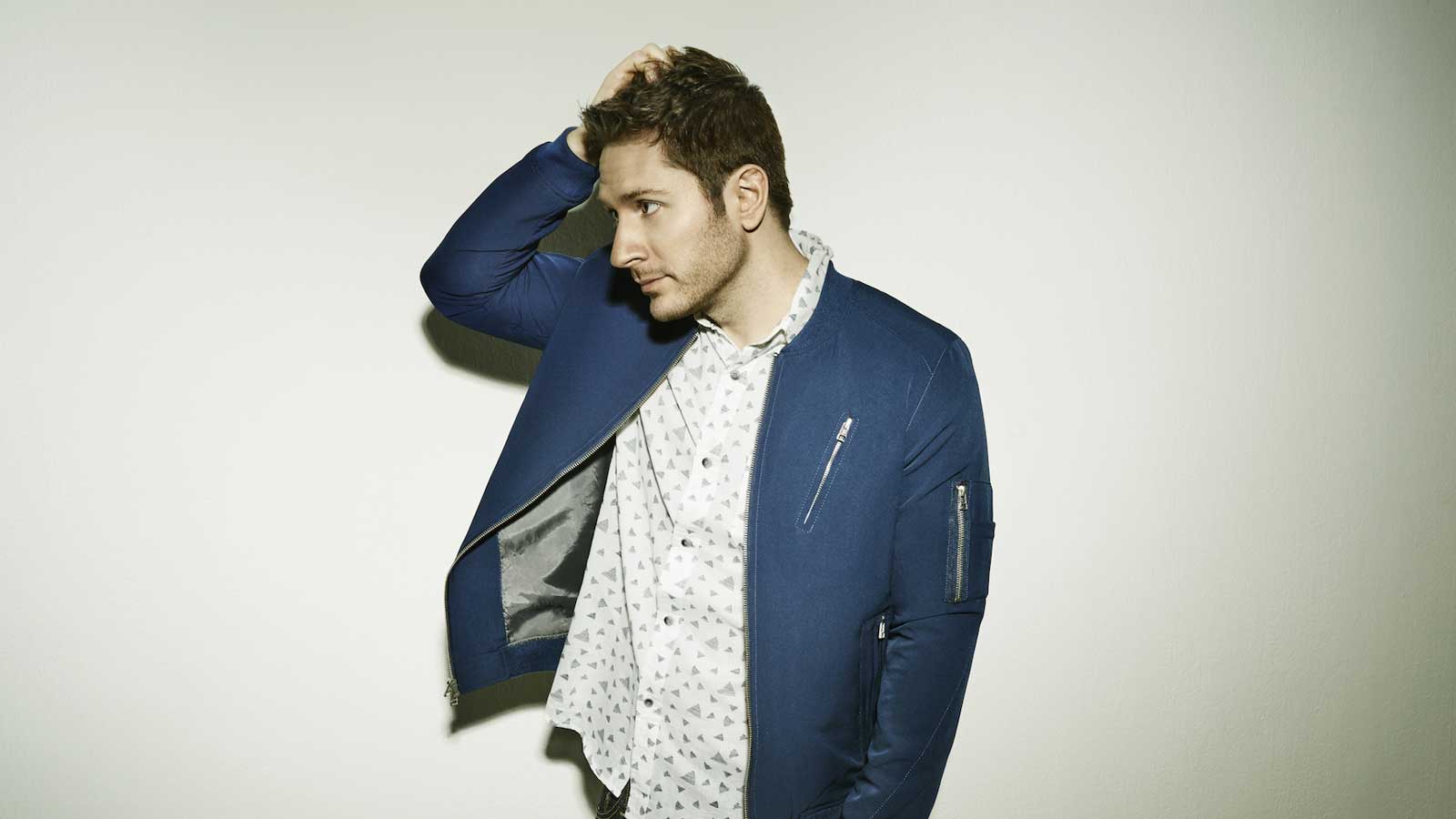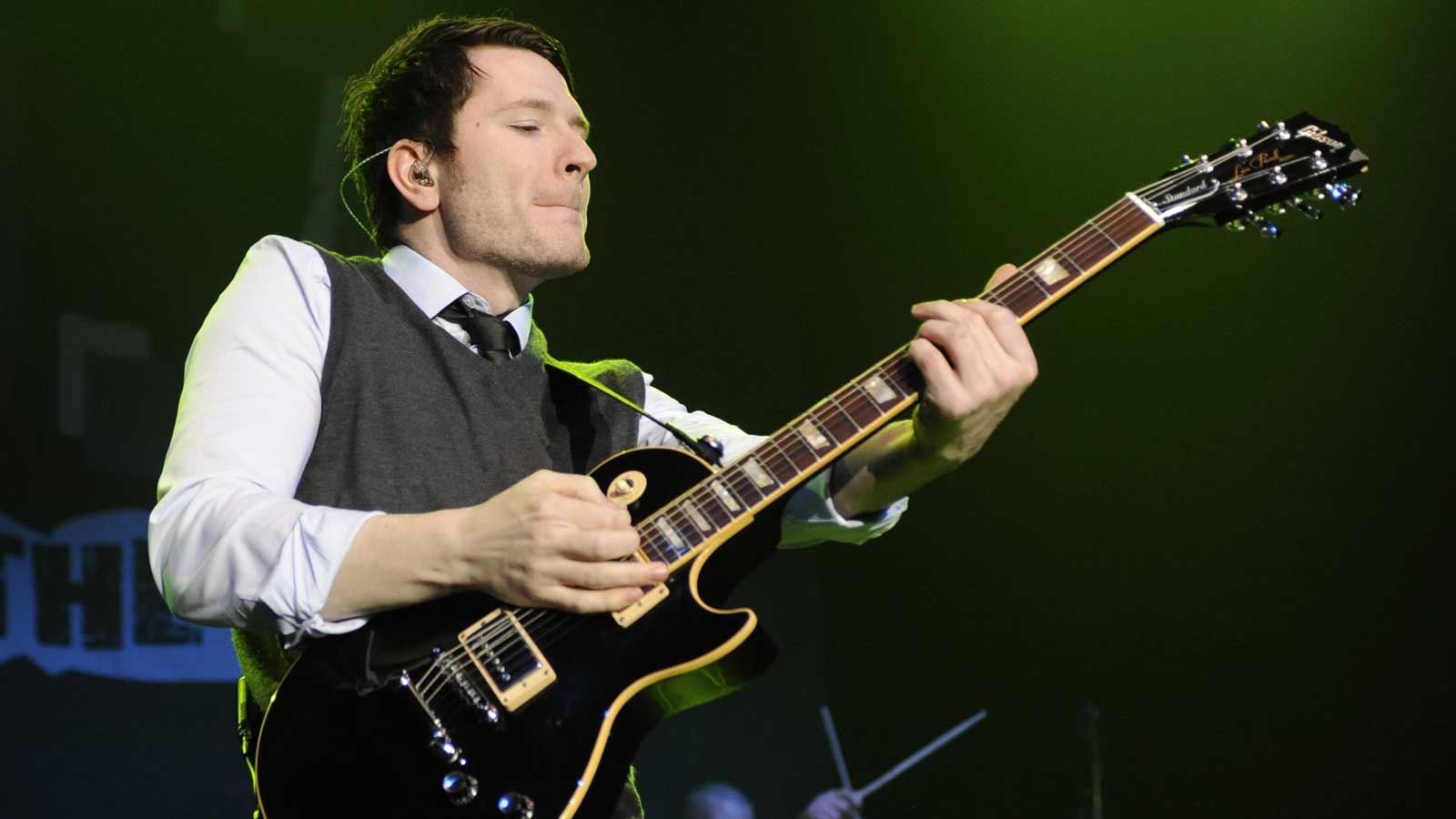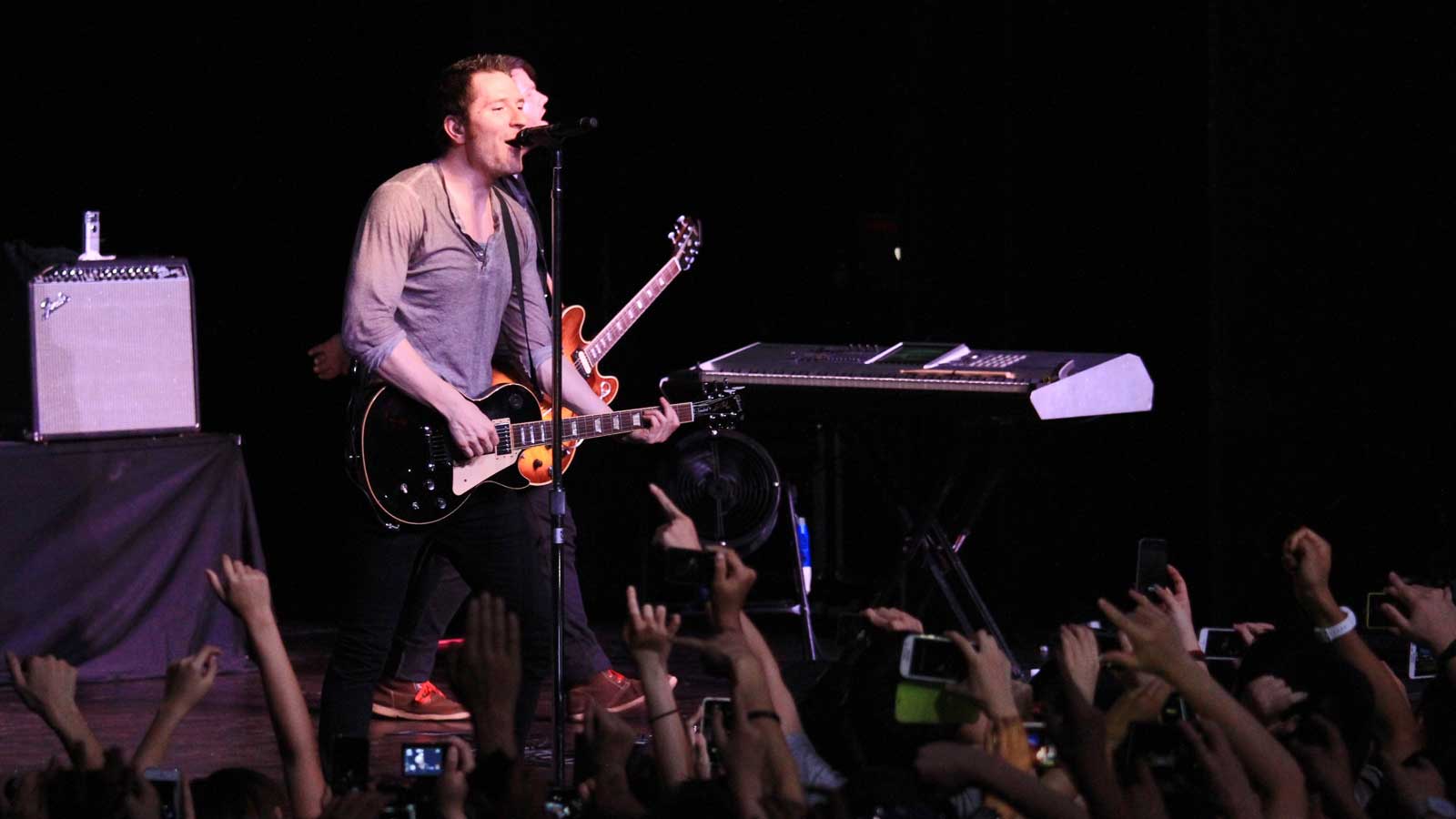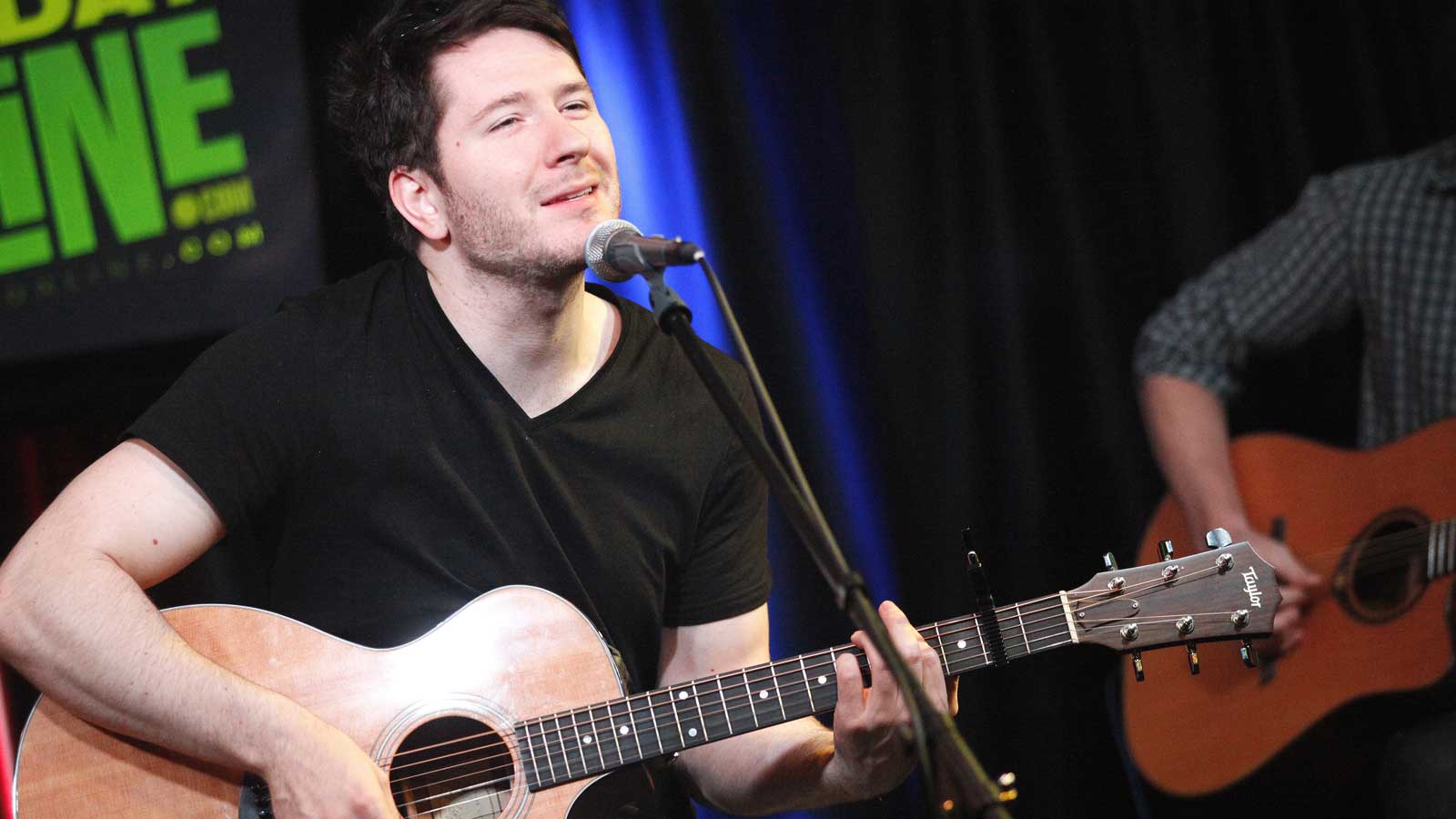Owl City talks new album Mobile Orchestra
Multi-instrumentalist Adam Young chats about the sound, style and passion behind his new best-selling electronica-pop-rock album

Introduction
“It’s cool to know that my songs can go out into the world and mean something different to someone else. To maybe uplift them or help them out if they’re dealing with something in their life that they can’t share with anyone else. It’s amazing how music has that capability.”
Adam Young is excited. We can feel the OMG vibes oozing down the phone line, connecting us to the Billboard, NRJ Music Awards and Vevo award-wining, platinum-selling 29-year-old as he takes on his millionth interview of the day.
Why is he so excited? Owl City’s new album, Mobile Orchestra, is another commercial success for multi-instrumentalist Adam, the sole member of Owl City and an in-demand artist who has collaborated with the likes of Armin van Buuren, Chicane [Nick Bracegirdle] and Blink-182’s Mark Hoppus among others. Mobile Orchestra hit No 1 on the iTunes Pop chart upon release, and the young singer-songwriter is basking in largely positive reviews of his latest creation.
“I’m really excited about this album,” gushes Adam, who landed a gargantuan hit with the six-time platinum-selling pop song Fireflies back in 2009. “It’s taken me a lot longer to make this one than any other album I’ve put out because there are so many different vocalists on it - scheduling and getting everyone in the studio was really challenging because we’re all so busy. Each of the guest vocalists did such an amazing job. I feel lucky to have worked with them.”
Aloe Blacc, Hanson, Jake Owen, Sarah Russell and Britt Nicole all guest feature on Mobile Orchestra, a 10-track electronica-pop-rock-country affair that includes grand opener Verge, the countrified Back Home and Adam’s ode to pop punk Bird With a Broken Wing.
“I’m so excited that all of the songs are out now, but in a way I feel as though they aren’t really mine any more. It’s a little bittersweet,” he confides. “Sometimes when I’m on tour, someone will come up to me and explain what one of my songs means to them, and sometimes they’re talking about emotions that I never even thought about when writing.”
Here Adam gives us a whirlwind tour of Mobile Orchestra, talking about the gear behind his electronica sound and offering insight into his always-on creative brain, before letting us know what he thinks is the greatest country album of all time. Clue: it isn’t one of Johnny’s.

Mobile Orchestra
There are some superb vocalists on Mobile Orchestra, including Jake Owen and Aloe Blacc. How did you choose those singers?
“On each given song, I was nearing the end of the process when I thought of each artist. On Verge, it was in the eleventh hour of writing a demo for it when I thought of Aloe Blacc and how amazing he would sound on the track.
"I had no doubts about these artists. I knew it would be better to let their creativity 100 per cent shine through.”
"I thought, ‘I’ll send him the demo, cross my fingers and hope for the best’. Each guest was so gracious and kind and so down to collaborate.
“Each song had a fairly good working demo, and most of the lyrics and vocal melodies were there as placeholders that I’d roughly recorded. In each of my emails to the artists I wrote, ‘I don’t want you to change anything about what you would do naturally. You do your thing and if you feel like the melody should go up instead of down, or whatever, then do it.’
"I had no doubts about these artists. I knew it would be better to let their creativity 100 per cent shine through.”
Mobile Orchestra is mostly an upbeat-sounding album. Was it your intention to create something danceable and inspiring?
“That was definitely the main goal. There’s a good mix of upbeat songs and ballads on there, and my hope is that the album experiments, in a new way for me, with influences from different genres.
"The song Bird With a Broken Wing is influenced by my love of punk rock bands like Green Day and Blink-182. My love of EDM and dance can be heard on the songs Verge and Can’t Live Without You. Even my love of country music is there on Back Home.”
How long were you working on the songs for before you started recording them?
“Some of the songs began as placeholder demos as far back as 2009/10 – some little melodic, bare bones intros or bridge sections that I’d started then left alone because I didn’t know what to do with them.
"During [the writing of] this album I went back through my archives and dug out a few interesting little melodies that I still liked and wanted to work in somehow. So some of the songs have bits and pieces patch-worked in from four or five years ago.”

Songwriting, Logic and text files
What does your songwriting process involve? Do you begin by writing down musical ideas and lyrics as and when they come to you, and then expand upon those ideas and lyrics later on?
“Usually it starts with a particular sound. To date it’s been this kind of synthesiser melody. I call it ‘the motor’ because it’s like a motor that propels the song forward.
“I have this mile-long text file on my laptop"
"In a way it sort of does what Edge does for U2: it kind of has this dotted eighth note delay pattern and it propels the music forward. That’s the element I usually come up with first.”
What are your main songwriting tools? Do you write lyrics on your phone, your laptop or into a notebook?
“I have this mile-long text file on my laptop. If you looked through it you’d probably laugh because there are so many random bits of rhyming on there, or words that I found interesting and cobbled together with other stuff.
"That’s how each song starts and when I begin the demo process it’s usually at the computer using Logic. It’s a case of laying down a generic template, which has some standard synth or piano sounds on there to help me get my head around the structure, the tempo and the BPM.”
You said in a recent interview that the creative side of your brain rarely stops. How do you live with it, or turn off the creative tap to get some rest?
“It’s definitely been a challenge! It’s a blessing and a curse because I tend to be prolific – I’m always making something new. There are periods of time where I don’t create anything new, or when I’m looking to find some new melody or new musical idea and it’s just not coming to me. If that happens I feel bummed out; I feel that I always need to be creating something new in order to feel like I’m progressing. That’s the curse.
“The blessing is that I do get a lot done. But yeah, it’s definitely a challenge to switch off that constant stream of creativity. I think I’ve learned how to live with it now.”

Everyday sampling, software and... country
There are some interesting electronic-based sounds within your songs. Do you use samples in your music?
“I work in the studio to create my own samples from synthesisers and drum machines. I’m always adding to a master folder of drum sounds and samples. I record a lot of samples of everyday things around my house: doors slamming, drawers closing, the sound of silverware being used… All of these everyday sounds I can record and manipulate [later in the studio]. I’ll then mix them in with my drum samples and hide them throughout the album.
“I have a mobile recorder that I carry around with me and also take on tour. People think I’m a nerd.”
So you have your own studio? What gear do you have in there?
“My studio is in the basement of my place [Adam lives in Owatonna, Minnesota]. The studio is a big room in the basement that looks like a war zone because there’s stuff littered everywhere – guitars and synths and basses just lying around. When I work I like to shut the door and just be alone. I usually work in the middle of the night so that no-one can bother me.”
“In terms of software, I primarily use Logic but I also use Pro Tools. Gear-wise, I have an SSL AWS 924 analogue mixing desk that I use for everything; I use all the preamps to record my vocals and anything else I record that isn’t in the software, like acoustic guitar or piano.
"Beyond that I use a load of plug-ins. I do a lot ‘in the box’ in Logic, but I like to surround myself with a lot of instruments because, even though I’m no virtuoso on any of them, it feels inspiring to have guitars and basses around me when I’m writing.”
"Brad Paisley is a monster guitar player and I love his style of songwriting"
What guitar brands do you use?
“I like recording with a Gibson Les Paul. I love any kind of dirty, humbucker-driven electric guitar sound. I love Fender P [Precision] basses, too, so I have an American Fender P bass that I use a lot. Those are my go-to guitars, but I also love Fender Telecaster and Stratocaster guitars, simply for the twang you can get out of them.”
Before you go, we’ve heard that you’re a massive country fan. Who is your all-time favourite country artist and what is your favourite country album?
“My favourite country artist is Jake Owen, who sings on the song Back Home [from Mobile Orchestra]. Beyond that, Brad Paisley is a monster guitar player and I love his style of songwriting. Any one of Brad’s albums is, in my opinion, the greatest country album of all time.”